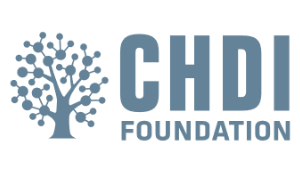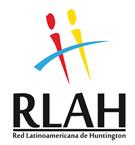CHDI

Huntington’s Disease (HD), first described by George Huntington in 1872, is a hereditary neurodegenerative disease that causes rapid cognitive decline, psychic behavioural problems and finally motor difficulties.
It is characterized by a more frequent onset in adulthood (between 30-45 years) but can occur at any age, from childhood to old age. The disease is caused by an autosomal dominant mutation in the gene responsible for the production of huntingtine, which carries a 50% risk of inheriting the disease if one of the two parents is affected.
The CAG triplet, which is repeated within the huntingtine gene, leads to a mutated form of huntingtine that gradually damages brain cells through mechanisms that are still unknown but on which research is focused today.
CHDI foundation, Inc. is a private non-profit association dedicated exclusively to the discovery of cures and therapies against the slow progression of Huntington’s disease (HD). CHDI employees are scientists who work and collaborate with a research network of more than 600 researchers within the academy, or from industrial laboratories around the world, in search of new therapies. All this ensures continuous communication between academic and industrial institutions, thus avoiding delays and additional costs.
The objectives and tasks of CHDI are to bring the right partners into this context, to identify new drugs and promote their experimentation in a short time; activities therefore range from the identification of new therapeutic targets, to the discovery of new drugs, to the development of clinical trials.

The European HD Network (EHDN) is a circuit dedicated to people with HD and to researchers and doctors who work to treat it, and which has the aim of facilitating collaborations across Europe. It sponsors studies on the natural history of the disease and trials that meet high clinical standards (Good Clinical Practice), thus helping to discover new effective treatments for HD. It is a real network in which all the participants involved can take a leading role and propose, conduct and publish studies. EHDN is organized in collection sites, in working groups, in coordination centers organized by language, under the guidance of an Executive Committee and a Scientific and Bioethical Committee of an advisory nature. EHDN provides an infrastructure for large-scale clinical trials, central coordination – including a web-based database for the collection of clinical data, a forum for the close collaboration of basic and clinical scientists, and linguistic support for the sites.

RLAH was born in February 2010 when a group of doctors and family members, with the support of the CHDI foundation and the encouragement of EHDN, formed a committee aimed at promoting and facilitating disease research in Latin American countries. 13 clinical sites in Argentina, Brazil, Chile, Ecuador, Peru and Venezuela have joined the initiative.

Cohort is an observational study on Huntington’s disease underway in 42 research centers in the United States, Canada and Australia and is an initiative of the Huntington Study Group. Cohort has enrolled over 1,500 people among HD patients and their close relatives. These participants go to one of the research centers once a year, donate blood, undergo a neurological evaluation and a medical examination and have the opportunity to provide other information. Its purpose is to collect useful information on patients with Korea of Huntington, develop potential treatments, plan studies and identify experimental drugs capable of postponing the onset or slowing its progression.

ENROLL-HD is an observational study for families affected by Huntington, which covers North and South America via Europe and reaches areas overlooking the Pacific. The main objective of Enroll-HD is to improve understanding of the disease and its mechanisms by collecting data regarding the patient’s cognitive, behavioral and motor areas to make an estimate on the progression of the disease and to deepen its neurobiological aspects; the collection of biological data and samples to identify the genetic and environmental factors that affect the phenotype and the progress of the disease, and finally the promotion of studies that provide clues to the pathogenesis. Enroll-HD represents a continuation and extension of REGISTRY and COHORT and expects the MD patient to undergo one visit per year. With the full support of the MD community – doctors, patients, families, researchers and supporters – Enroll-HD aims to greatly improve the information available on the disease of Huntington and create new opportunities for future research.

Registry V3 is a multi-national observation study, without any clinical trials. It is one of the largest studies on Huntington’s disease in Europe and is based on the collection of data and precious biological samples with the aim of understanding why and when the first tunings of the disease begin to appear, with the aim of identifying new therapies. Registry aims to involve the highest number of people with Huntington.

Track-On HD has gathered 240 participants for over two years from 4 different international sites: Leiden (Netherlands) London (UK), Paris (France) and Vancouver (Canada) and was born and developed starting from the success of the previous TRACK- HD, with the aim of extending the results of this study to those who have not yet developed obvious symptoms of the disease. The participants therefore show little or no symptoms and the measurements that are carried out require greater sensitivity to be able to perceive small changes that slowly lead to the development of the actual disease. Once the specific disease markers are identified, a clear roadmap can be designed to test targeted therapies for all candidates in the stages prior to the onset of symptoms. Since the biological changes caused by the HD gene mutation are complex, Track-On HD, like its predecessor TRACK-HD, includes a number of different measures and methods for characterizing and mapping disease progression.
